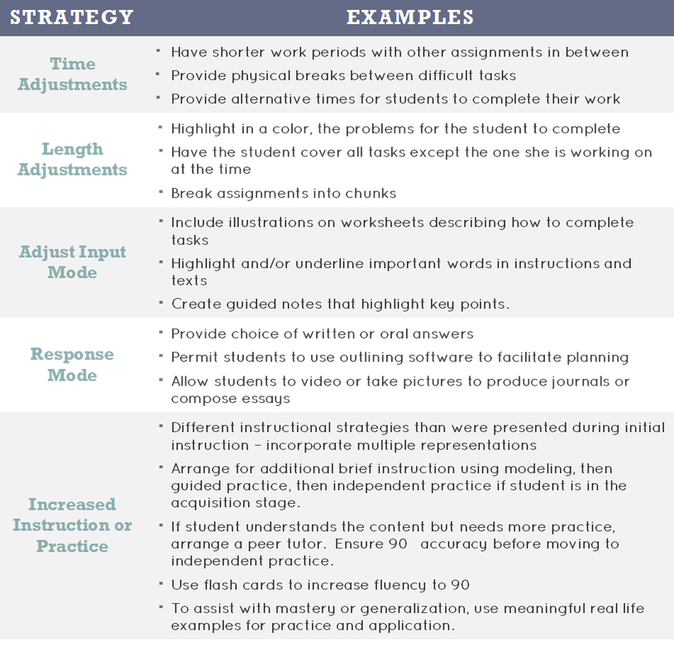

What is task difficulty? How does it impact students with diverse learning needs?
Task difficulty relates to work assignments that exceed the student’s skill level. It is important to determine which aspects of the task/assignment do not match the student’s skills, and then how they can be appropriately adjusted to decrease associated problem behaviors and increase opportunities for academic success. According to Scott, Anderson & Alter (2012), work assignments that are too difficult for students or require them to use skills sets that are challenging for them, commonly result in problem behavior. Similarly, providing tasks at the correct level of difficulty increases & promotes on-task behavior, task completion, task comprehension and appropriate class-wide behavior (Kern & Clemens, 2007). Lastly, decreasing the overall task length and offering periodic breaks to do something else can aide in decreasing problem behavior and increased work production. (Dunlap, Kern-Dunlap, Clarke & Robbins, 1991).
As it relates to student with diverse learning needs and challenges, task analysis allows the school personnel to identify the specific parts of a task or assignment where the breakdown in learning has occurred. Initially, the breakdown may not be obvious and may require probing or asking specific questions to determine and select the most appropriate teaching strategies, accommodations and modifications to best support student needs. If problem behaviors persist, it may be necessary to determine if inappropriate or off-task behavior are truly associated with task difficulty or if another behavior trigger is at play. Lastly, when making decisions about the strategies, make sure the strategy is truly matched to the part of the lesson where the student is experiencing difficulty.
STEPS FOR ADDRESSING TASK DIFFICULTY:
Dunlap, G., Kern-Dunlap, L., Clarke, S., & Robbins, G. R. (1991). Functional assessment, curricular revision, and severe behavior problems. Journal of Applied Behavior Analysis, 24, 387-397.
Kern, L. and Clemens, N.H. (2007). Antecedent strategies to promote appropriate classroom behavior. Psychology in the Schools, 44(1), 65-75.
Scott, T. M. Anderson, C. M., & Alter, P. (2012). Managing classroom behavior using positive behavior supports. Upper Saddle River, NJ: Pearson Education, Inc.

Meka Tull, School Psychologist and Interim Director of School Partnerships


 RSS Feed
RSS Feed